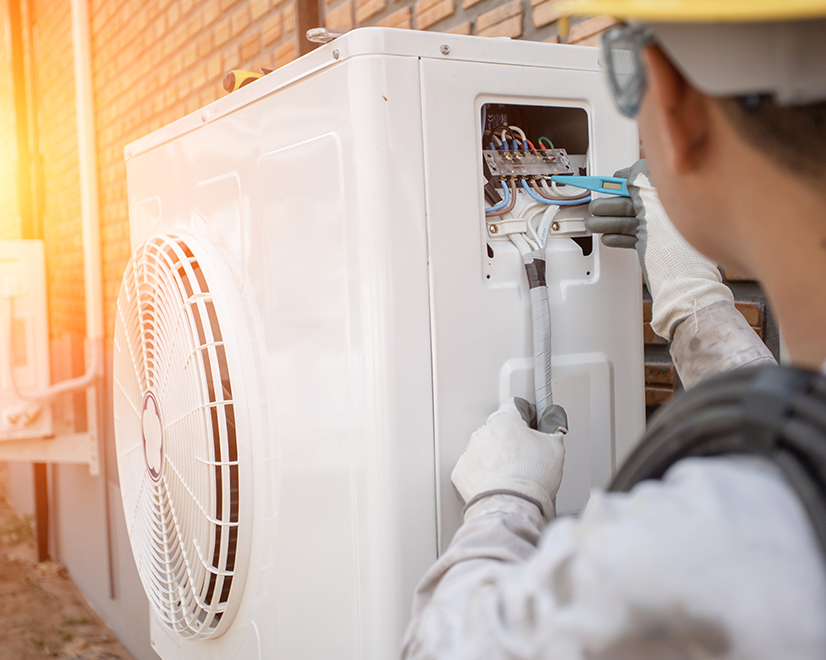New Jersey’s Board of Public Utilities (BPU) agreed Wednesday to vigorously promote a statewide shift from fossil-fuel space and water heating systems to electric appliances as part of a three-year energy efficiency program.
The board voted 4-0 to approve the Triennium II proposal to cut building emissions through the use of demand-response programs and voluntary electrification backed by incentives as the state seeks to reach 100% clean energy by 2035.
A key element of the framework, which will be in effect from July 1, 2024, to June 30, 2027, is a series of building decarbonization (BD) “startup” program plans designed to encourage customers of all kinds — but especially residential and multifamily dwelling customers — to switch from fossil-fuel water and space heaters to electric appliances.
Although the BPU initially floated a budget of about $150 million over three years for the building decarbonization programs, the latest version sets out a more “robust” estimate of $84 million in the first year, $120 million in the second and $144 million in the third, for a total close of $348 million. The final figure, however, will be determined by the utilities in the state working with the BPU board, the order says (QO19010040, QO23030150, QO17091004).
Contentious Issues
The Triennium is one of several initiatives begun by Gov. Phil Murphy (D) to decarbonize buildings by reducing fossil fuel use and increasing electricity use. In February, Murphy said the state should have 400,000 additional dwelling units and 20,000 additional commercial spaces “made ready” for electrification by the end of 2030 (Executive Order No. 316).
Some electrification supporters say the plans are too timid. Opponents argue that switching to electrical space and water heating systems is expensive and decry what they see as a “mandate” by the Murphy administration to make the shift. (See NJ Building Decarb Plan Garners Support, Criticism.)
BPU President Joseph L. Fiordaliso said the framework, approved 4-0, “without a doubt … kickstarts to the next generation of energy efficiency in New Jersey.”
“It will deliver significant emissions reductions through critical investments in efficiency,” he said. “That importantly, will help save ratepayers money.”
He criticized “fear mongering” and “misinformation” about the program, particularly the suggestion that the state is forcing people to switch to electricity.
“Let’s be clear: We are not mandating anyone to give up their gas stove,” he said. “This program is about giving people more choices and more chances to create a more sustainable and more affordable energy future.”
Shifting The Burden
But Ray Cantor, deputy chief government affairs officer for the New Jersey Business and Industry Association, one of the state’s largest business groups, said the program “shifts the cost of an ineffective building electrification policy onto the backs of ratepayers who already pay some of the highest electric rates in the nation.”
“A 100% building electrification policy is not the best approach,” he said. “There has been no comprehensive planning or investment in either the transmission or generation systems adequate to support a massive building electrification policy. … It is irresponsible for the state to move ahead with new sources of demand and hope that the grid and generation capacities will be there.”
In addition, he said, “there are other, and perhaps less costly and more efficient options, to decarbonize our building sector.”
Adopting Heat Pumps
The Triennium II framework, which follows an earlier three-year plan in place until June 30, 2024, includes goals, targets, performance incentive mechanisms and other strategies to improve the state’s energy efficiency efforts and make them accessible throughout the state, especially to low- and moderate-income customers. The BPU drafted the final version after two lengthy public hearings on the proposal in June. (See NJ BPU Outlines $150M Building Decarbonization Plan.)
Startup programs proposed in the Triennium include providing customer incentives to persuade customers to switch from fossil fuels to electricity. The program places a high priority on consumer adoption of heat pumps, which the BPU’s order says generate two to four times more energy than they consume — compared to regular appliances that generate less energy than they consume.
The programs should be created by the electric distribution companies and should “prioritize customer incentives for electric space and water heating in the residential and multifamily sectors, focusing on switching from delivered fuels to electric heat pumps,” the framework said. Programs also should enable gas distribution companies to propose hybrid solutions to their customers, such as switching from gas to electric air conditioning but maintaining a gas-powered heat furnace.
The plans also call for the implementation of demand response programs in which customers receive a signal urging them to reduce their energy consumption when demand is high and the grid stressed, such as in especially hot or cold weather. The BPU is looking to utilities to design the programs so they are easy for customers to use and rely on smart meters and thermostats.



